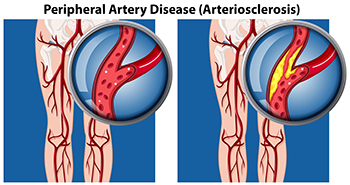
Peripheral artery disease, or PAD, affects blood circulation, often manifesting through symptoms related to the feet. Common signs include cramping, pain, or numbness in the feet during physical activity, which subsides with rest. Coldness or discoloration of the feet or toes, particularly in comparison to the unaffected leg, may also occur due to reduced blood flow. Slow-healing wounds or sores on the feet are another indicator, as PAD limits the delivery of oxygen and nutrients essential for tissue repair. PAD, caused by narrowed arteries due to plaque buildup, increases the risk of complications, such as infections and tissue death in severe cases. Regular foot exams from a podiatrist are essential for managing PAD. If you have symptoms of PAD, it is suggested that you are under the care of this type of doctor who can help you to manage this condition.
Peripheral artery disease can pose a serious risk to your health. It can increase the risk of stroke and heart attack. If you have symptoms of peripheral artery disease, consult with one of our podiatrists from Greater Boston Foot Care, PLLC. Our doctors will assess your condition and provide you with quality foot and ankle treatment.
Peripheral artery disease (PAD) is when arteries are constricted due to plaque (fatty deposits) build-up. This results in less blood flow to the legs and other extremities. The main cause of PAD is atherosclerosis, in which plaque builds up in the arteries.
Symptoms
Symptoms of PAD include:
- Claudication (leg pain from walking)
- Numbness in legs
- Decrease in growth of leg hair and toenails
- Paleness of the skin
- Erectile dysfunction
- Sores and wounds on legs and feet that won’t heal
- Coldness in one leg
It is important to note that a majority of individuals never show any symptoms of PAD.
Diagnosis
While PAD occurs in the legs and arteries, Podiatrists can diagnose PAD. Podiatrists utilize a test called an ankle-brachial index (ABI). An ABI test compares blood pressure in your arm to you ankle to see if any abnormality occurs. Ultrasound and imaging devices may also be used.
Treatment
Fortunately, lifestyle changes such as maintaining a healthy diet, exercising, managing cholesterol and blood sugar levels, and quitting smoking, can all treat PAD. Medications that prevent clots from occurring can be prescribed. Finally, in some cases, surgery may be recommended.
If you have any questions, please feel free to contact our office located in Plymouth, MA . We offer the newest diagnostic and treatment technologies for all your foot care needs.
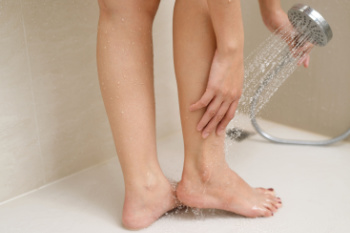

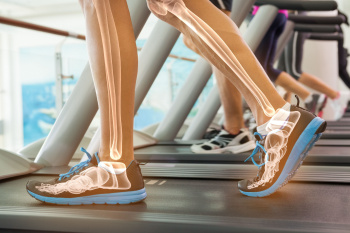
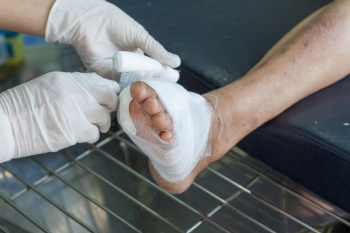 Diabetic foot wounds
Diabetic foot wounds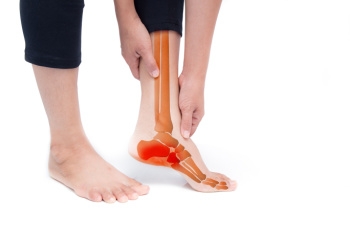 Peripheral neuropathy
Peripheral neuropathy